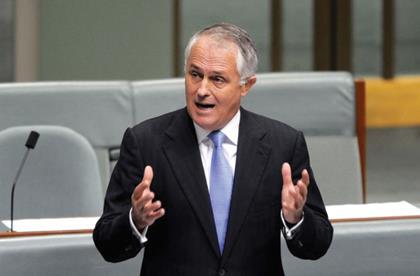
IN recent years there is no question that the global tone of political debate has taken a turn for the worse, and no more so than in Australia. The expectation that both sides of politics will use the public platform to engage in reasoned debate relevant to their constituents needs is consistently unfulfilled. Instead, politicians seem to turn up to class only for the opportunity to denigrate, to accuse each other without basis, to throw away meaningless sound-bites and to see who can come up with the most vitriolic, nasty and inane insults, then see who can shout them the loudest. Indeed, a recent poll from SMH online notes that 77% of respondents considered the tone of Australian political debate to be ‘deplorable’. 19% agreed it was ‘poor’. That leaves only 4% believing it was OK or ‘great’.
However, amongst the muck, and the mudslinging — a rare moment of insight. A light at the end of the dark tunnel of abuse and baseless attacks on policy platforms. A call from Malcolm Turnbull to address the ‘deficit of trust’ the debasement of our political debate has caused, from a politician who has himself been subject to accusations of being “a tool of smear and innuendo” and harangued off his own political perch. A possible cause for optimism that should his comments be conceded, I may one day logon online to find a respectful, insightful and informative discussion between politicians on the issues of the day, instead of a system that rewards “spin, exaggeration, misstatements”.
Mr Turnbull has used the opportunity of the recent George Winterton Lecture delivered at the University of Western Australia to tackle what he identifies as the “coarsening in the dialogue between politicians and those who elect them” and the resulting dismay and distrust we as Australians now hold for our Parliamentarians.
Singling out ‘Question Time’ for particular comment, Mr Turnbull noted the recent tendency for the debate to become doggedly bogged down in two issues – people smuggling and the carbon tax. Considering this to be a consequence of having the Prime Minister the singular focus of the questions, he notes it is to the detriment of providing the public with an informed debate in a range of issues. As a solution he has advocated a shift to a British style system, in which all Ministers, and therefore their respective departments, are held to account in the House of Commons Question Time on a rotating basis.
Though there is some debate amongst commentators whether this would effectively translate to the Australian context, Mr Turnbull’s call for a system that is “civil and honest” that respects, not insults, the intelligence of the Australian people is one that at least demands careful consideration.
Do you agree?











